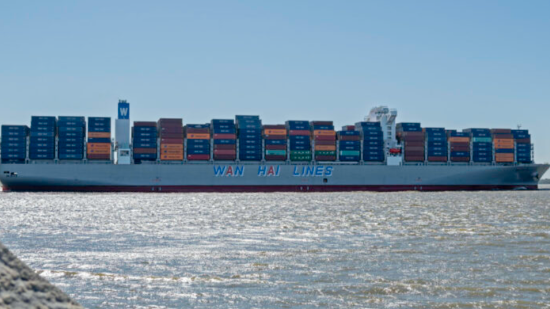On May 27th, the global shipping industry witnessed a milestone cooperation - Ningbo Zhoushan Port officially signed an agreement on the construction of a green shipping corridor with three major European hub ports, namely the ports of Hamburg and Wilhelmshaven in Germany and the Port of Valencia in Spain. The plan aims to build three intercontinental green shipping routes, pressing the "accelerator" for low-carbon cooperation between Chinese and European ports.
Facing the challenges of emission reduction, Chinese and European ports are jointly seeking a breakthrough
At present, the international shipping industry, which carries about 80% of the world's international trade, is facing unprecedented pressure to reduce emissions. As an innovative decarbonization mechanism, the green shipping corridor, through the collaborative efforts of ports, shipping enterprises, energy suppliers and the government, accelerates the application of zero-carbon technologies, clean fuels and intelligent management on specific routes, becoming a key path to solve the industry's predicament. According to the agreement, the four parties will carry out joint actions in core areas such as the joint construction of shore power facilities, the optimization of the collection and distribution system, the large-scale application of renewable energy, and the establishment of a clean fuel refueling network, to promote the full low-carbonization of liner routes from the terminal gate to the gate, and ultimately achieve the goal of net zero emissions in maritime transportation between the two ports.
Ningbo Zhoushan Port: The "Pioneer" of Green Transformation
As a benchmark for domestic green port construction, Ningbo Zhoushan Port has continuously increased its investment in low-carbon technology research and development and promotion in recent years. Data shows that the utilization rate of clean energy has reached 74%, the coverage rate of shore power at wharf berths (excluding liquid chemical berths) has reached 100%, and the usage of shore power is expected to exceed 20 million kilowatt-hours in 2024, with remarkable achievements in emission reduction. Tao Chengbo, the chairman of Zhejiang Port Group and Ningbo-Zhoushan Port Group, emphasized that in the future, they will deepen cooperation with ports and shipping companies along the "Belt and Road", accelerate the implementation of the green corridors in the ports of Hamburg, Wilhelmshaw and Valencia, and provide a replicable "Chinese solution" for the decarbonization of the global shipping industry.
Green Shipping Corridor: A New fulcrum for China-Eu Cooperation
This cooperation not only marks the in-depth collaboration between Chinese and European ports in the fields of low-carbon technology, clean energy and intelligent shipping, but also will reshape the competitive landscape of the global shipping industry. By joining forces with stakeholders such as shipping companies, cargo owners and energy enterprises, the four parties will jointly explore a full-chain carbon reduction path from ship design to port operation, injecting strong impetus into the global shipping industry's net-zero emissions target.
Against the backdrop of the global shipping industry's countdown to emission reduction, the "green alliance" between Ningbo Zhoushan Port and the three European ports undoubtedly sets a new benchmark for the industry's transformation. With the gradual implementation of the three green corridors, Chinese and European ports are interpreting the sustainable development concept of "win-win cooperation" through concrete actions and paving a solid course for the green future of global trade.

Last
Multiple containers have been detained! The customs seized a large quantity of smuggled goods
Recently, the Philippine Customs (BOC) seized two batches of unauthorized sugar and a batch of falsely declared cigarettes at the

Next
Wan Hai names 12th 13,100 TEU vessel
WanHaiLineshasheldanamingceremonyforWANHAIA19atSamsungHeavyIndustries’Geojeshipyard,accompaniedbyacharityevent.HuifangZhang,Logist
